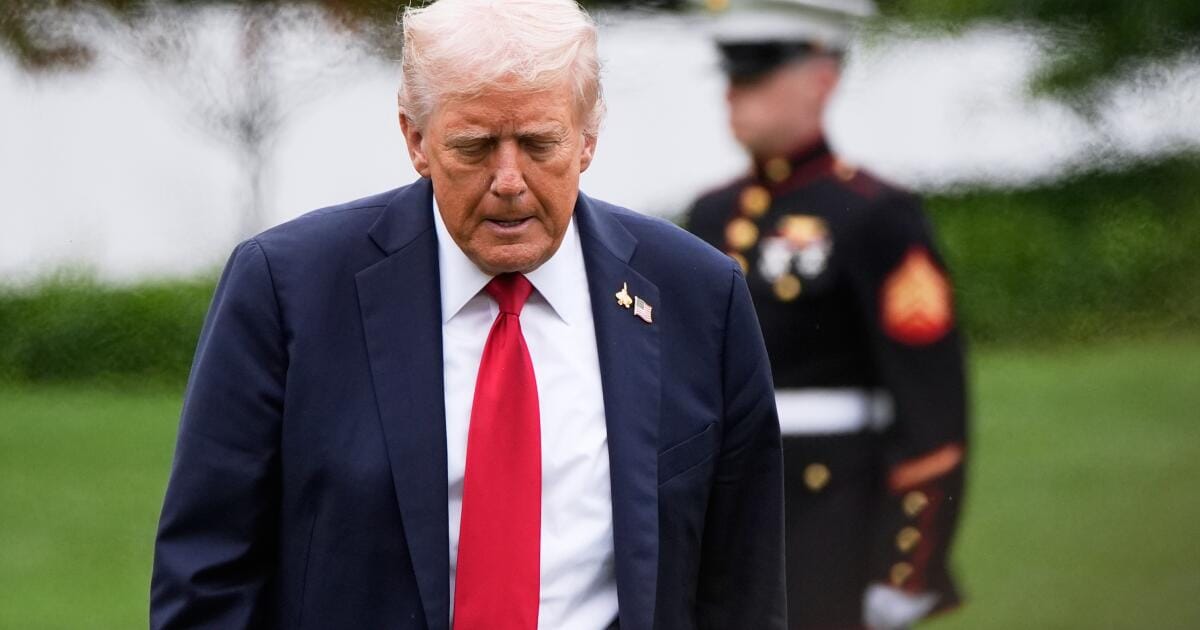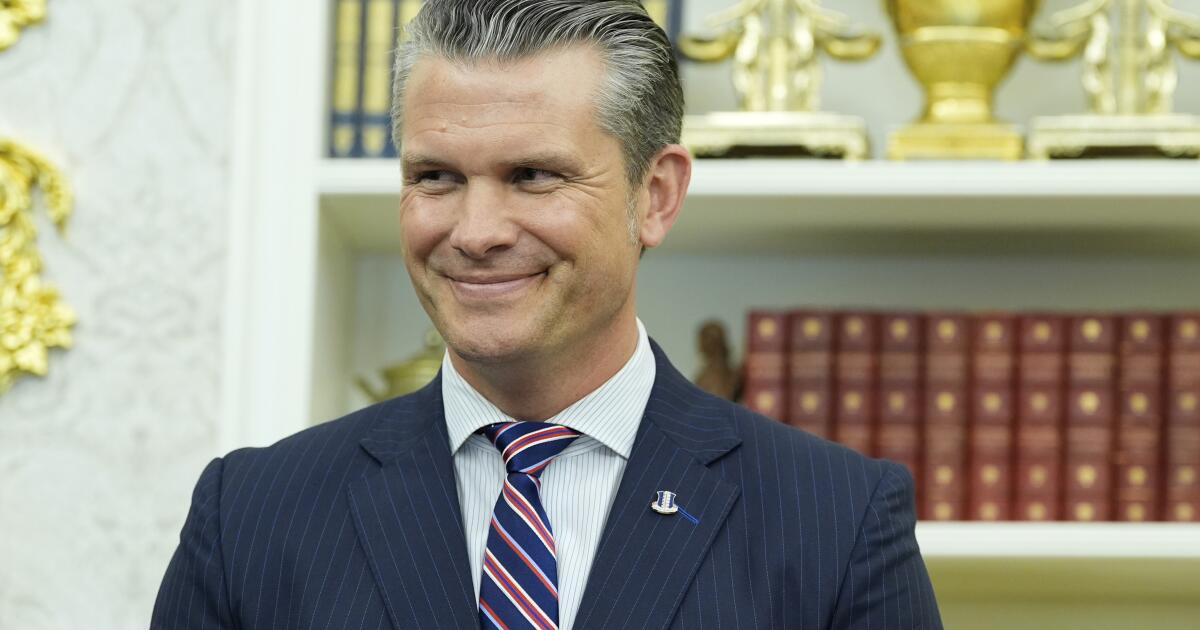Trump says U.S. is in ‘armed conflict’ with drug cartels after ordering strikes in the Caribbean
WASHINGTON — President Trump has declared drug cartels to be unlawful combatants and says the United States is now in a “non-international armed conflict,” according to a Trump administration memo obtained by the Associated Press on Thursday, following recent U.S. strikes on boats in the Caribbean.
Congress was notified about the designation by Pentagon officials on Wednesday, according to a person familiar with the matter who was not authorized to comment publicly and spoke on the condition of anonymity.
The memo, startling in scope, signals a potential new moment not just in the Trump administration’s willingness to reach beyond the norms of presidential authority to wage war but in Trump’s stated “America First” agenda. It also raises stark questions about how far the White House intends to use its war powers and if Congress will exert its authority to approve — or ban — such military actions.
The move comes after the U.S. military last month carried out three deadly strikes against alleged drug-smuggling boats in the Caribbean. At least two of those operations were carried out on vessels that originated from Venezuela.
Those strikes followed up a buildup of U.S. maritime forces in the Caribbean.
“Although friendly foreign nations have made significant efforts to combat these organizations, suffering significant losses of life, these groups are now transnational and conduct ongoing attacks throughout the Western Hemisphere as organized cartels,” according to the memo, which refers to cartel members as “unlawful combatants.” “Therefore, the President determined these cartels are non-state armed groups, designated them as terrorist organizations, and determined that their actions constitute an armed attack against the United States.”
Pentagon officials could not provide a list of the designated terrorist organizations at the center of the conflict, a matter that was a major source of frustration for some of the lawmakers who were briefed, according to the person.
Lawmakers have been pressing Trump to go to Congress and seek war powers authority for such operations.
The White House and the Pentagon did not respond to requests for comment. Multiple defense officials reached Thursday appeared to be caught off guard by the determination and would not immediately comment or explain what the president’s action could mean for the Pentagon or military operations going forward.
What the Trump administration laid out at the closed-door classified briefing was perceived by several senators as pursuing a new legal framework that raised questions particularly regarding the role of Congress in authorizing any such action, the person familiar with the matter said.
As the Republican administration takes aim at vessels in the Caribbean, senators and lawmakers of both major political parties have raised stark objections. Some had previously called on Congress to exert its authority under the War Powers Act that would prohibit the administration’s strikes unless they were authorized by Congress.
The first military strike, carried out on Sept. 2 on what the Trump administration said was a drug-carrying speedboat, killed 11 people. Trump claimed the boat was operated by the Tren de Aragua gang, which was listed by the U.S. as a foreign terrorist organization earlier this year.
The Trump administration had previously justified the military action as a necessary escalation to stem the flow of drugs into the United States.
But several senators, Democrats and some Republicans, as well as human rights groups questioned the legality of Trump’s action. They called it potential overreach of executive authority in part because the military was used for law enforcement purposes.
By claiming his campaign against drug cartels is an active armed conflict, Trump appears to be claiming extraordinary wartime powers to justify his action.
Sen. Jack Reed of Rhode Island, the top Democrat on the Senate Armed Services Committees, said the drug cartels are “despicable and must be dealt with by law enforcement.”
“The Trump Administration has offered no credible legal justification, evidence, or intelligence for these strikes,” said Reed, a former Army officer who served in the 82nd Airborne Division.
The Trump administration has yet to explain how the military assessed the boats’ cargo and determined the passengers’ alleged gang affiliation before the strikes.
Madhani and Mascaro write for the Associated Press. AP writer Konstatin Toropin contributed reporting.

